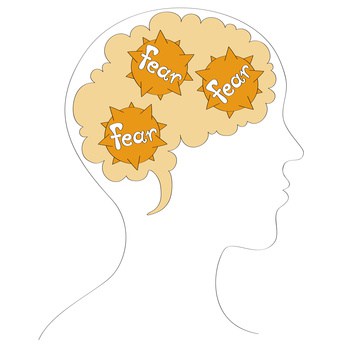12 things you need to know if you’re close to someone with anxiety
Contents
- 1 12 things you need to know if you’re close to someone with anxiety
- 1.0.1 1) They are not an anxious person; they are someone who has anxiety
- 1.0.2 2) People with anxiety may be tired and irritable
- 1.0.3 3) They will avoid situations that they ‘believe’ will trigger their anxiety
- 1.0.4 4) People suffering from anxiety understand their fears are not always rational
- 1.0.5 5) People with anxiety are usually good at explaining their symptoms
- 1.0.6 6) Asking people with anxiety to confirm that they are ok all the time is not a good idea
- 1.0.7 7) People suffering from anxiety need support
- 1.0.8 8) People suffering from anxiety get stuck
- 1.0.9 9) Change is difficult for people suffering from anxiety
- 1.0.10 10) People suffering from anxiety have a lot on their minds
- 1.0.11 11) Sufferers of anxiety focus on coping mechanisms
- 1.0.12 12) Remember, anxious people may see things differently
- 1.1 Was this article useful? If so, please share…
As a full-time hypnotherapist, I spend a lot of time helping people with anxiety and the progress we make is sometimes unwittingly undermined by the people closest to them. So I thought it would be useful to share some ways that friends and family of an anxiety sufferer can really help them to recover (or at the very least not hinder their recovery).
Seriously, anxiety sufferers can get better – they just need a bit of help sometimes.
Anxiety is difficult, not only for the person suffering it, but also for the people around them too. Partners and children can all feel the impact of a family member with anxiety.
When you have a family member with anxiety, you may feel you often have to walk on eggshells around them, and this can be draining, both physically as well as mentally.
With that in mind, we have created this article to help those people that want to support and help a loved one experiencing anxiety.

1) They are not an anxious person; they are someone who has anxiety
This is an important distinction, because anxiety should not define the person. Anxiety is a transitional state, not a permanent one. Anxiety can get worse but it can also get better, and it is subject to change. It’s important for you to see them as a person first, and that the anxiety is a condition that they are experiencing at the moment.
Always remember that they can get back to being ‘someone’ who hasn’t got anxiety.
2) People with anxiety may be tired and irritable
Think of how prolonged stress may affect you; it’s hard work, it’s tiring and frustrating. You need to understand that they will often be running on empty and to make allowances for that when you are planning your time together.
If they should be looking after children, that will make things twice as bad.
If someone is experiencing anxiety every day, it’s tiring. Remember that next time you’re asking them to be more ‘active.’
3) They will avoid situations that they ‘believe’ will trigger their anxiety
People with anxiety will try to avoid situations in which their anxiety is more likely to happen.
This is simply right and proper; when human beings experience anything that we perceive as danger, a belief is established in the subconscious part of the mind. For example, let’s say that someone has a panic attack on a train. The subconscious mind believes that being on a train is dangerous and, therefore, it needs to be avoided.
This is a mechanism that we all have, and it is essential for our survival. The mechanism is working as it should – it’s the belief that is at fault and needs to be changed. The problem is that it is tough to change beliefs held in the subconscious mind.
Think about how difficult it is for someone else to change your mind about something you believe!!!
4) People suffering from anxiety understand their fears are not always rational
The idea is not to shame them out of their anxiety, but to help them to come to terms with it, to allow the subconscious to start to change the underlying beliefs.

5) People with anxiety are usually good at explaining their symptoms
Having anxiety does not mean that they are incapable of expressing or talking effectively (unless they’re panicking, in which case they likely can’t. Don’t try to get them to either!).
If their anxiety has been dismissed or shot down as being stupid in the past, they are unlikely to want to talk about it. After all, who likes to be told they are silly?
The trick is actually to help them to express their thoughts and feelings. Don’t forget there is a big difference between thoughts and feelings. Thoughts are rational (usually), and feelings can be irrational, and please remember to actually listen to what they are saying.
6) Asking people with anxiety to confirm that they are ok all the time is not a good idea
But the key to all of this, if they ask you to leave them alone, leave them alone! They are experienced in handling their anxiety; let them get through it, however they see fit.

7) People suffering from anxiety need support
They appreciate your support and understand that sometimes their condition means you are making sacrifices.
Anxiety is difficult for everyone concerned, which means you too. People with anxiety are aware that you’ve not done some things you would’ve liked to because they couldn’t. They’re not oblivious to what it takes to support them.
This often makes they feel guilty, so do all you can to mitigate that guilt. Remember, it’s NOT their fault, so never try to guilt them into doing something you want to do.
8) People suffering from anxiety get stuck
As we talked about earlier, anxiety is supported by inappropriate beliefs but these are not any old beliefs, they are beliefs that have been set up in an atmosphere of fear or trauma, usually based on a situation or object. When this situation/object is encountered or likely to be encountered, the subconscious mind puts the mind and body on “red alert”.
In this “red alert” mode the brain is firing on all cylinders and then starts the over thinking. They are primarily looking for any possible scenario that might heighten the perceived danger. If we look for danger, we can usually find it.
They over think, they have selective memories, they believe history always repeats itself, especially ‘bad stuff.’
They get stuck in this fear and anxiety cycle that they have no way of getting out of, and hence they feel trapped.
9) Change is difficult for people suffering from anxiety
Change is difficult for everyone, but even more so if you are anxious to start with. You’re adding another thing to worry about.
People with anxiety tend to feel more comfortable when they’re allowed to be in their “safe zone”, where nothing significant changes.
When they’re faced with big change and upheaval, it can take them a lot longer to establish that safe zone again. Just remember to have a little more tolerance, patience and understanding for them. They are usually trying as hard as they can.
10) People suffering from anxiety have a lot on their minds
Sometimes they have difficulty focussing on you and your conversation. Don’t worry, it is not intentional.
Basically, they are planning ways to avoid or extract themselves from their perceived “danger” (whatever that is).
Imagine how distracted you would be if you were about to tackle something very dangerous or extremely difficult. The chances are that you would be pretty distracted because you would be concentrating on the difficult task ahead.
Well, it’s the same for people experiencing anxiety. It’s all they can focus on. When we are in panic mode, the primeval part of the brain takes command, and the conscious (analytical) part of the mind gets hardly a look in.
11) Sufferers of anxiety focus on coping mechanisms
Essentially, they are easily distracted by thoughts or triggers that reminded them of their problems. This causes them to think of ways to protect themselves as we discussed previously. Sometimes they may use distraction techniques to help them to avoid these thoughts, which sometimes means they are not attentive to you because they are trying to focus on something else.
12) Remember, anxious people may see things differently
That can be a positive, as well as a negative outcome.
For example, people with anxiety learn how to battle adversity and use their inner resources to cope with overwhelming fear. Some would say that their anxiety has helped them to become a stronger, more resourceful person. Especially when they get rid of their anxiety and move on to a more relaxed life.
Always remember, people suffering from anxiety are human too. They share many of your hopes, fears and expectations. Anxiety is simply a transitory state, it does not have to be permanent.
They can fix this problem. It may take some time and some help, but once they have, often they come out stronger than ever.
Remember these tips and give them love and support in their fight against feeling afraid.

